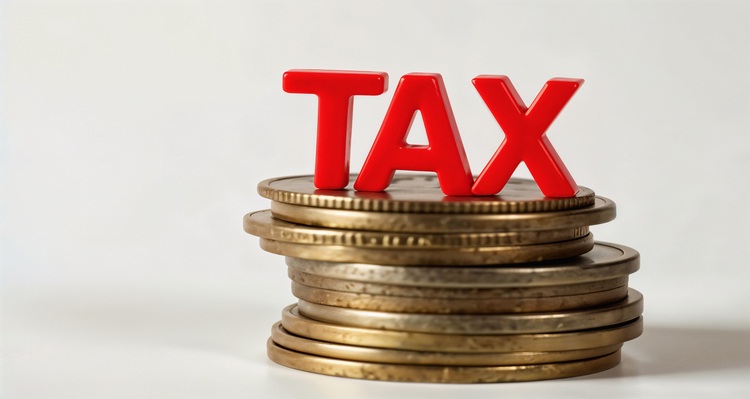The 56th meeting of the GST Council, held under the chairpersonship of the Union Finance & Corporate Affairs Minister, Nirmala Sitharaman, has cleared a series of measures intended to simplify procedures, improve refund mechanisms, and reduce compliance burdens for businesses.
The Council has endorsed a risk-based system for provisional refunds on zero-rated supplies. Under this arrangement, 90 per cent of the refund claimed will be released provisionally by the proper officer, based on automated evaluation of risk. In exceptional cases, detailed scrutiny may still be carried out, but the new rule is designed to accelerate refunds for exporters and suppliers to Special Economic Zones.
A notification will also specify categories of taxpayers not eligible for provisional refunds, with the system due to take effect from 1st November 2025. A similar mechanism is being extended to refunds arising from the inverted duty structure.
Pending formal legislative amendments, the Central Board of Indirect Taxes and Customs will issue instructions directing field formations to grant 90 per cent refunds provisionally, again on the basis of automated risk assessment. This change too is expected to be operational from 1st November 2025.
Exporters stand to gain from another reform: the removal of the threshold limit on refund claims related to low-value consignments.
Expressing her views on the same, Upasana Taku, Co-Founder and CFO, MobiKwik, explained, “The recent GST reductions on key consumption items couldn’t have come at a better time for the payments ecosystem. With lower prices on essentials, consumers will have more disposable income to redirect toward discretionary festive purchases across electronics, textiles, and lifestyle categories. At MobiKwik, we expect this to create a strong multiplier effect, i.e. every rupee saved on essentials is likely to fuel additional spending that flows through our wallet and payment gateway services.”
“We also anticipate accelerated merchant adoption, as retailers prepare for higher transaction volumes and integrate digital payment solutions to capture the surge. Lastly, the e-commerce boost could be particularly significant, with categories like electronics, personal care, and daily essentials driving online shopping activity. Together, these factors position us well for increased wallet top-up and higher transaction frequency,” she added.
Mukesh Pandey, Director, Rupyaa Paisa said, “GST 2.0 represents one of the largest reforms in taxation since the initial introduction of GST in 2017. Its implications for India’s MSMEs could be revolutionary. For many years, small companies suffered from overly complex tax structures, delays in refunds, and compliance burdens that consumed time and working capital. The new dual slab of 5 per cent and 18 per cent provided clarity on the classification issue and invoicing however; we are working to ameliorate classification issues. For MSMEs this could mean less legal battles, higher efficiency and increased buyer demand as several products are now more affordably classified. India’s 6.4 crore MSMEs employing more than 11 crore people are the engine of our economy. If GST 2.0 is implemented effectively, it will not only lower the cost of compliance, but improve competitiveness and have small businesses better positioned to succeed domestically and internationally.”
By amending section 54 of the CGST Act, the government aims to ensure that small exporters, including those using courier or postal modes, will no longer face restrictions in accessing refunds on shipments made with tax payment.
Registration procedures are also set for a significant overhaul. The Council has recommended an optional simplified registration scheme for small and low-risk businesses, allowing automated approvals within three working days.
The scheme will be open to applicants whose estimated tax liability does not exceed Rs 2.5 lakh per month and will include provisions for voluntary entry and exit. It is expected to cover the vast majority of new applicants and is scheduled to begin from November. In a related move, the Council gave in-principle approval to a simplified registration pathway for small sellers using e-commerce platforms to reach multiple states.
This is intended to address the compliance challenges faced by such suppliers, who are currently required to maintain a principal place of business in every state where they operate. On the issue of intermediary services, the Council recommended the removal of a long-debated clause in the IGST Act.
With this change, the place of supply will be determined according to the location of the recipient, a move expected to benefit Indian providers by enabling them to claim export benefits more readily.
The Council has recommended changes to sections 15 and 34 of the CGST Act, ensuring that discounts are passed on through credit notes, accompanied by reversal of input tax credit by the recipient.
A previous circular issued in 2024 will be withdrawn, and a fresh clarification will address issues such as treatment of financial or commercial credit notes, discounts linked to dealer-consumer transactions, and promotional considerations.
In addition, valuation methods for certain products have been revised. Goods such as pan masala, cigarettes, gutkha, chewing tobacco and other tobacco products will now be assessed on the basis of retail sale price rather than transaction value.
By combining these procedural shifts with institutional reforms such as the operationalisation of the GST Appellate Tribunal, the Council has positioned the latest package as a comprehensive step toward greater efficiency, transparency and trust in the tax system.
Send news announcements/press releases to:
info@b2bmarketmedia.com





